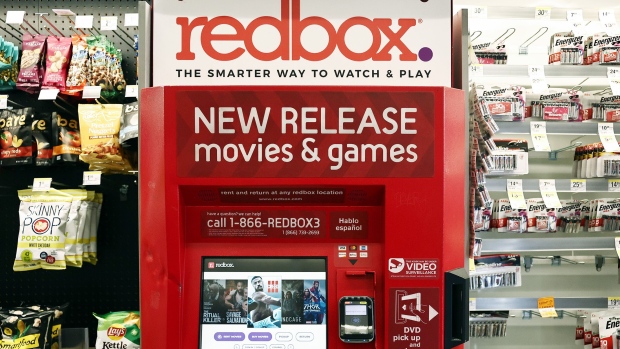Jul 2, 2024
HPS Investment Fights for Control of Bankrupt DVD Company Redbox
, Bloomberg News

(Bloomberg) -- HPS Investment Partners LLC won a court fight to replace the board of directors of bankrupt Redbox Entertainment Inc. and agreed to arrange a loan for the DVD rental company’s parent so that employees can be paid.
Under a tentative deal worked out Tuesday, HPS will line up an $8 million loan for Redbox’s publicly traded owner, Chicken Soup for the Soul Entertainment Inc. In exchange, the company will reinstate independent members to the board, lawyers for both sides said in court Tuesday afternoon.
Lenders led by HPS claim that board members were wrongly fired last month by controlling shareholder William J. Rouhana Jr. The lenders earlier told US Bankruptcy Judge Thomas Horan, who is overseeing the case, that Rouhana can’t be trusted because he failed to pay workers or fund their health insurance and diverted months worth of payroll taxes.
HPS and Chicken Soup will return to court tomorrow for approval of the financing package after putting together loan documents and talking with other company lenders about the proposal. HPS will also consider loaning the company enough money to continue operating while under court protection, said Andrew M. Leblanc, a lawyer for HPS.
Surprise Conflict
Chicken Soup filed for bankruptcy Friday without telling its lenders or informing the court about a dispute over who should be running the company, HPS’s lawyers said. HPS filed papers that accused Rouhana of mismanagement and sought to reinstate the fired directors.
The legal brouhaha conflicts somewhat with the public persona of Cos Cob, Connecticut-based Chicken Soup, which was founded in 1993 and named for a series of inspirational books it publishes. Horan said on Tuesday that the allegations took him by surprise.
“I was pretty shocked yesterday morning when I started reading the filings that were coming in” from HPS and other lenders, Horan said during a court hearing in Wilmington, Delaware. Although the case at first looked routine, “it turned out to be anything but.”
Rouhana is no longer Chicken Soup’s chief executive and no longer controls the company, Michael P. Cooley, a bankruptcy lawyer for the company, told Horan during the hearing. Although Chicken Soup didn’t disclose certain details about the lender dispute, the company did make clear that it faced big financial troubles, including a failure to pay wages in June, Cooley said.
Cash Needs
The company needs the court’s permission to immediately borrow cash to pay back wages and other employee costs, as well as stabilize operations so it can reorganize, Cooley said.
The deal to return the independent directors happened after Horan warned the company that its initial loan request, which did not involve HPS, was likely to fail.
HPS represents lenders owed $500 million. Before the bankruptcy, HPS told Chicken Soup that it would accept $200 million instead, if the company could raise the money by June, HPS lawyer Dennis F. Dunne said in court.
The media company listed assets and liabilities of at least $500 million each in its Chapter 11 bankruptcy petition. The filing allows Chicken Soup to keep operating while it works on a plan to repay creditors.
Chicken Soup struggled to keep up with its financial obligations after buying DVD rental company Redbox in 2022, court papers show. It took on about $360 million of debt in connection with the deal, a sum that would only be manageable if it could capitalize on movie releases bouncing back from pandemic-era lows, Rouhana said in a sworn bankruptcy court statement.
Although the movie business rebounded somewhat, Redbox needed additional cash to buy and distribute new content, Rouhana said. But the company’s lenders vetoed a new loan facility, starving the business of funds, according to Rouhana.
That left parent Chicken Soup “unable to pay for all the movies that were offered by their providers, and operating results failed to meet management’s expectations, particularly in Redbox’s kiosk rentals, resulting in insufficient cash flows and working capital to operate the business efficiently,” Rouhana said.
Asset Sales
The company plans to use its bankruptcy to sell off some business units and restructure others, according to court papers. It lined up $20 million of new debt to fund the Chapter 11 process.
Chicken Soup still operates about 24,000 Redbox DVD rental kiosks across the US. It also runs Crackle, a no-cost streaming service that relies on advertisements to make money. The company’s content library spans 28,000 films and 40,000 episodes of television, according to court papers. It became a publicly traded company in 2017.
The case is Chicken Soup for the Soul Entertainment Inc., 24-11442, US Bankruptcy Court for the District of Delaware.
--With assistance from Jonathan Randles.
(Adds agreement between lenders and company on directors, loan in first and second paragraphs, next steps in fourth paragraph)
©2024 Bloomberg L.P.





